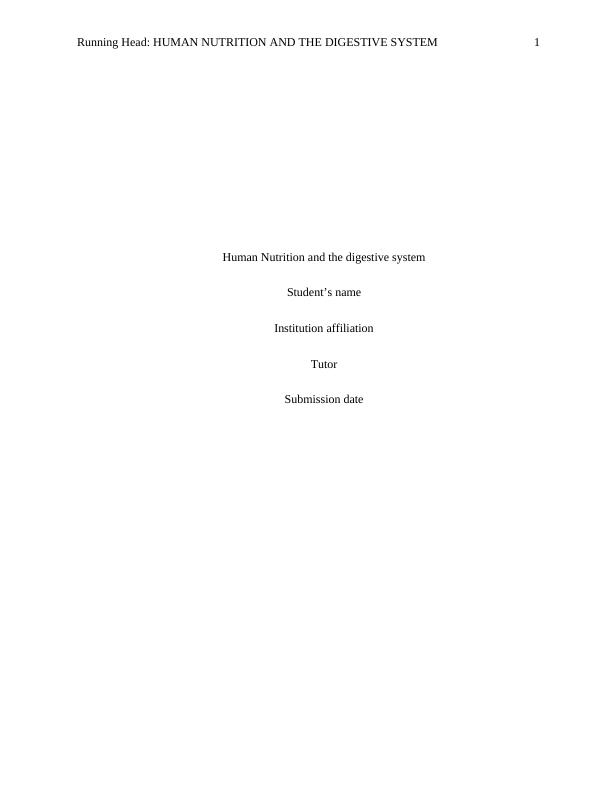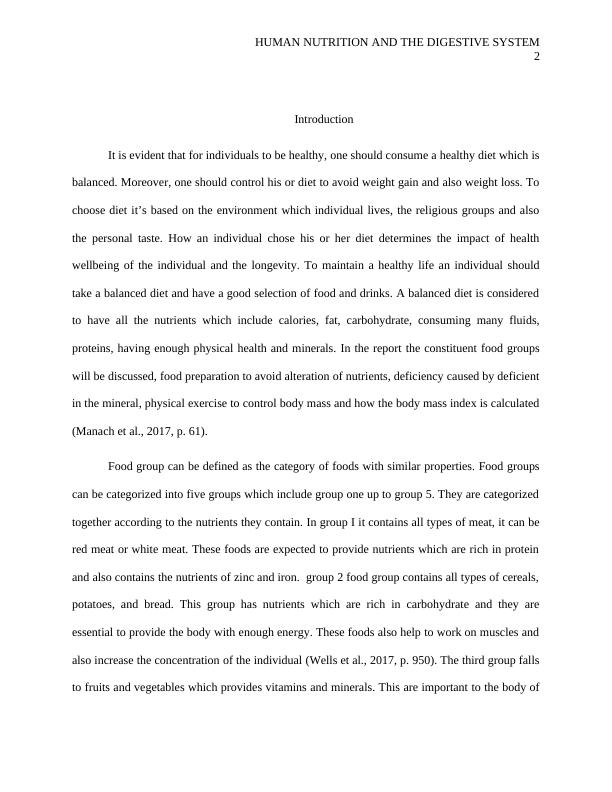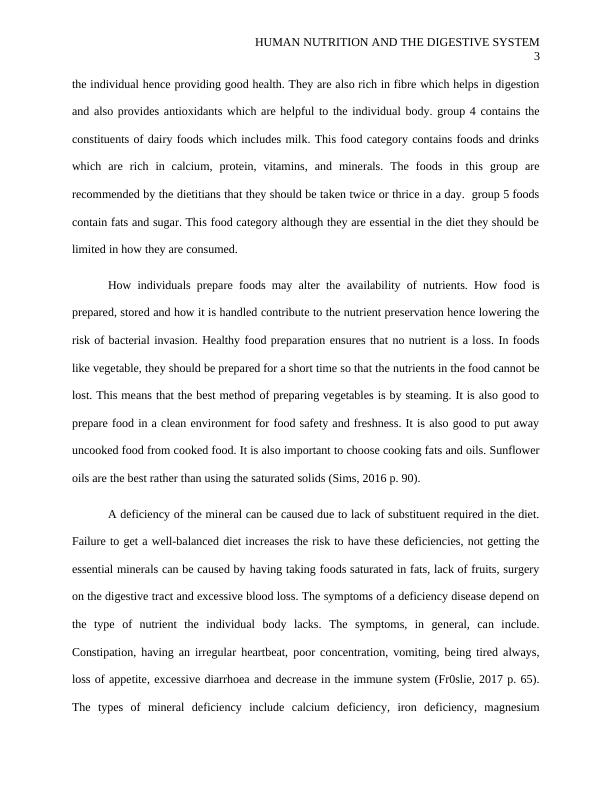Human Nutrition and the Digestive System
Write a report demonstrating understanding of nutrients and their sources, and how diet may influence health. Analyze key life stage scenarios and include information on balanced diet, food preparation, nutrient availability, mineral deficiency symptoms, vitamin deficiency disease symptoms, food intake and physical activity, and BMI calculation.
Added on 2023-03-17
About This Document
Human Nutrition and the Digestive System
Write a report demonstrating understanding of nutrients and their sources, and how diet may influence health. Analyze key life stage scenarios and include information on balanced diet, food preparation, nutrient availability, mineral deficiency symptoms, vitamin deficiency disease symptoms, food intake and physical activity, and BMI calculation.
Added on 2023-03-17
End of preview
Want to access all the pages? Upload your documents or become a member.



